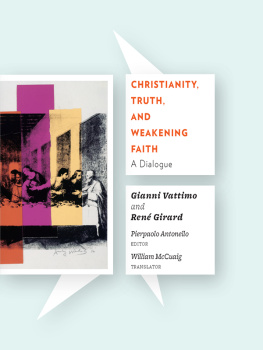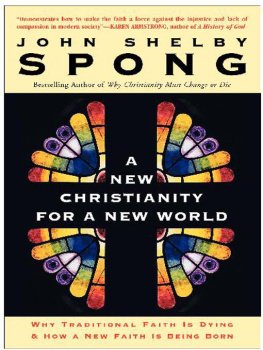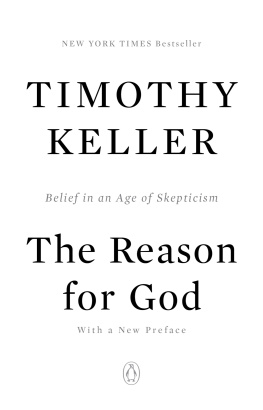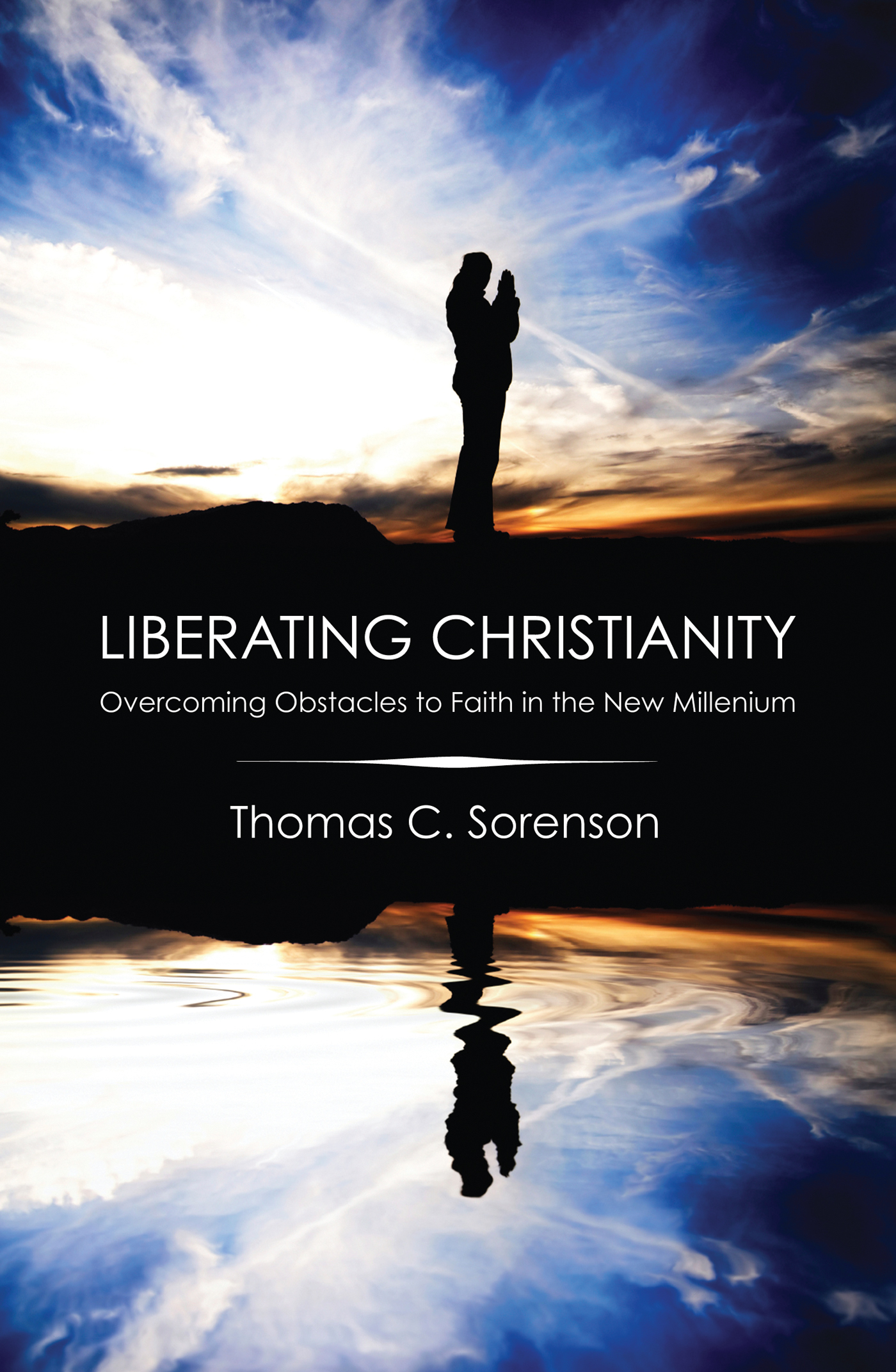A Philosophical Appendix
The Meaning of Is:
The Essential Nature of Knowledge and Truth
T his study is based upon a particular philosophical understanding. I explain that understanding in this Philosophical Appendix. As the title of the Appendix suggests, that understanding has to do with the nature of human knowledge and the nature of truth examined from a philosophical perspective. I hope that you will find this Appendix interesting and helpful. I am quite sure you will find it challenging. I trust that you will find it to be worth the effort.
1. The Issue
During the scandal over his affair with White House intern Monica Lewinsky, President Clinton was widely ridiculed for his claim about the truth of a certain statement by one of his lawyers that it depends upon what the meaning of the word is is. In the context in which the President made that remark, it was truly absurd, and he deserved all the ridicule he got. Yet in the context of a discussion of the crucial foundational question of the nature of truth, of what constitutes truth and of how and to what extent we can know truth, the question of the meaning of the word is is the most profound question that we can ask. This work is a consideration of the nature of Christianity, of what it is and is not, of what it can be and what it cannot be. That consideration must be based upon an understanding of the very nature of human knowledge and truth, of the meaning, in effect, of the word is.
People making claims about the truth of Christianity and of the Bible use the word is, or some other form of the verb to be, all the time. They say, Christianity is the one true faith and the Bible is the revealed word of God. They say, the Bible is literally true and inerrant and Jesus Christ is the incarnate Son of God. These and many other claims about the faith use the word is all the time, yet in our American culture people never stop to ask, What does it mean to say that something is? Or to ask, How can we know that something is? We dont ask those questions, yet a claim that something is necessarily implies certain assumptions about what it means for something to be. A critique of any claim that something is will be superficial if it does not begin with an examination of the claims assumptions about what is means. Put more philosophically, a critique of any claim that something is will be superficial if it does not begin with an examination of the claims ontology, that is, of its understanding of the nature of being. A closely related and equally important question is the question of what the philosophers call epistemology, the question of how and to what extent we can know that something is. Epistemology is the question of how and to what extent we can know what is real.
These questions may sound silly and insignificant to you, but they are not. They probably sound silly and insignificant to you because in our dominant culture in North America today we do not teach people to think philosophically, or even critically. We all have operating assumptions about what is real and about how we know what is real, but we are never taught to examine those assumptions even to see what they are, much less to see if they hold up to close critical scrutiny. Yet if we are truly to understand the nature of faith and of the truth of faith, we must undertake such a critical examination of our assumptions about what is real and how and to what extent we can know what is real. I know that the discussion that follows may seem obscure to you. It may seem theoretical and lacking in practical significance. It used to seem that way to me too, but please bear with me and follow along closely. This stuff really is important to our task of liberating Christianity.
2. The Objectivist Assumption
We all live every day in a world that is presented to us by our sense perceptions. We see people and things. We hear sounds. We smell odors and taste flavors. We touch objects. All the while we assume that what we perceive through our senses corresponds to something objective, to something outside ourselves that exists independently of our perception of it. Weve probably all heard this question: If a tree falls in the woods and there is no one there to hear it, does it make a sound? Im willing to bet that the immediate answer that sprang into your head when you first heard the question was: Of course if does! I know that that was my immediate answer to the question the first time I heard it. What you may not have thought about was the fact that there is a reason why you immediately wanted to answer that question yes it does. Once its pointed out to us, we get it that there cant be a sound without an ear to hear it. Nonetheless, we answer the question yes because we go through life assuming that what we perceive corresponds directly to something objective, something real that exists outside of and apart from us. We assume the objective reality of the things we perceive precisely because we perceive them. We think: How could I perceive something that isnt really there?
I will call that assumption the objectivist assumption. It is the assumption we all make that, when we perceive something with our senses, there is, in fact, an object that corresponds to our perception of it. It is the assumption that what we are perceiving has its own independent, objective existence. It is the assumption that there is an object that we are perceiving that would be there whether we perceived it or not and that, barring some physiological abnormality that distorts our perception, that thing exists as an objective fact the way we perceive it.
3. The Fallacy of the Objectivist Assumption
You may find it difficult at this point to see the objectivist assumption as an assumption, but in the eighteenth century the British philosopher David Hume demonstrated that the objectivist assumption is precisely that, an assumption, and that it cannot possibly be more than that. Indeed, he demonstrated that the objectivist assumption is a fallacy when it claims to know that what we perceive has objective reality apart from our perception of it. To help you understand Humes hypothesis, let me lead you through a brief exercise.
Pick an object nearby (actually, what appears to be an objectthe objectivist assumption is so deeply ingrained in us that it is difficult even to talk about it without falling back into it), a book, a lamp, a table, or a chair for example. Look at it. Or if you prefer or need to because of a physical limitation, touch it. It doesnt matter which sense you use for this exercise. See it. Feel it. It seems real to you, doesnt it? You see its shape, its size, its color. You feel its hardness or softness, its texture, its warmth or coolness. And so you know that the thing is really something out there, a separate object with its own being, its own reality. It was there before you looked at it or touched it. It will be there after you look away or remove your hand. You know that all of that is true.
Or do you? Think about the matter a bit more. What do you really know? You know that you looked and saw, that you touched and felt. You know that you perceived something. You know that you experienced a sight or a touch. You experienced an object as real. Humes great insight was to see that that is all you know: that you experienced a sight or a touch. Because all you really know is that you experienced a sight or a touch, you cannot know that there is indeed an object out there that corresponds to your experience of a sight or a touch. When you think you know the objective existence of the object, what youre really doing is assuming that there is such an object. You cannot know that such an object exists apart from your perception of it. Perception is all you have.










